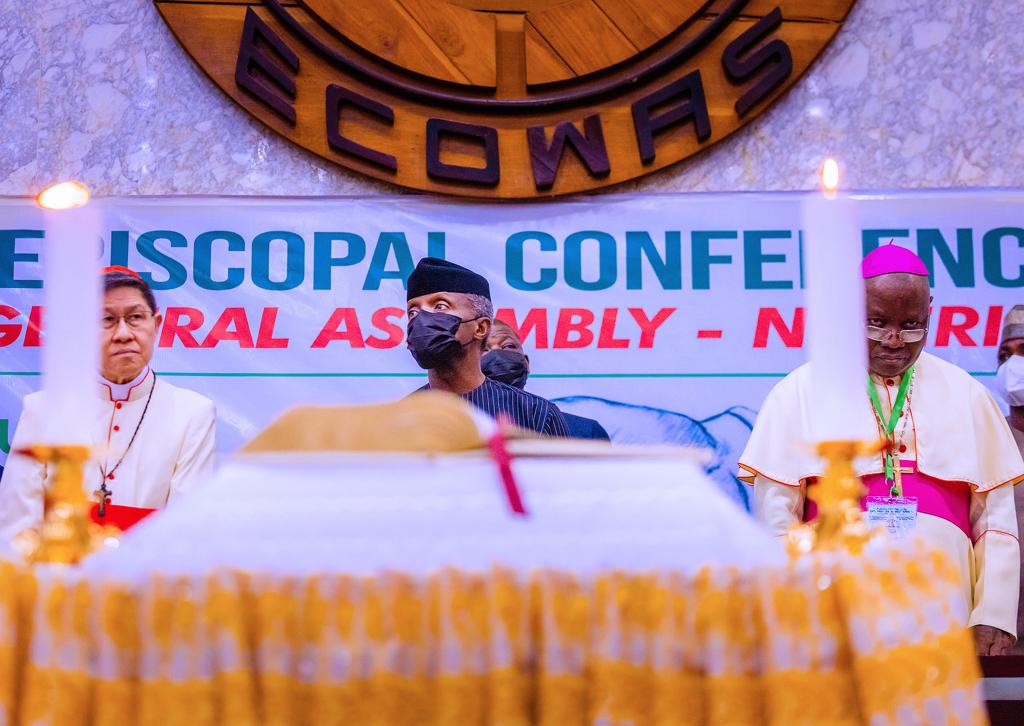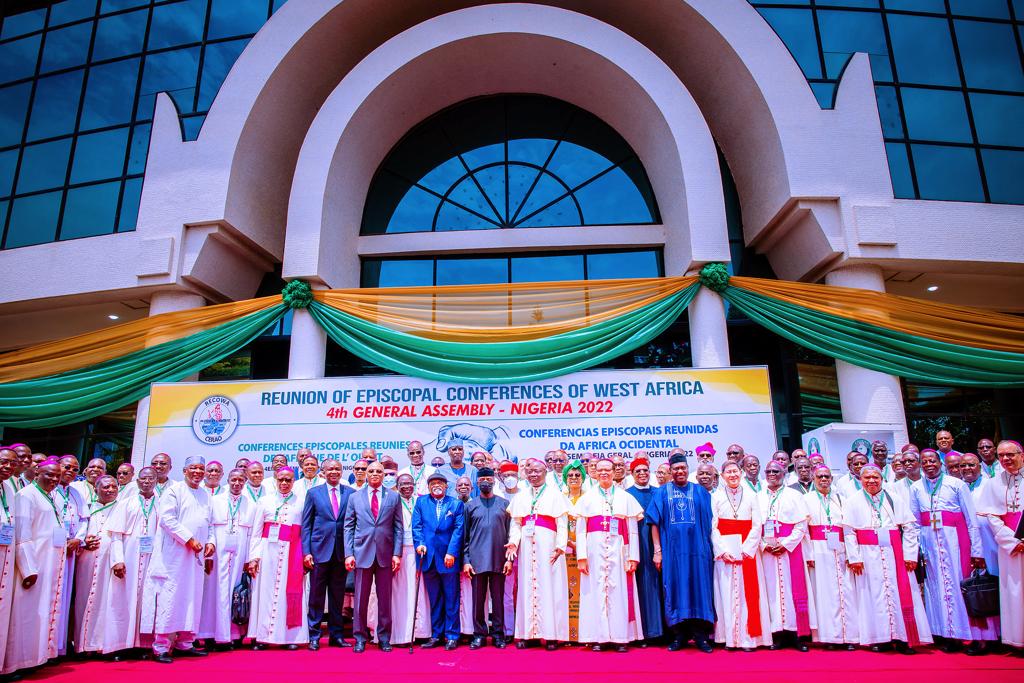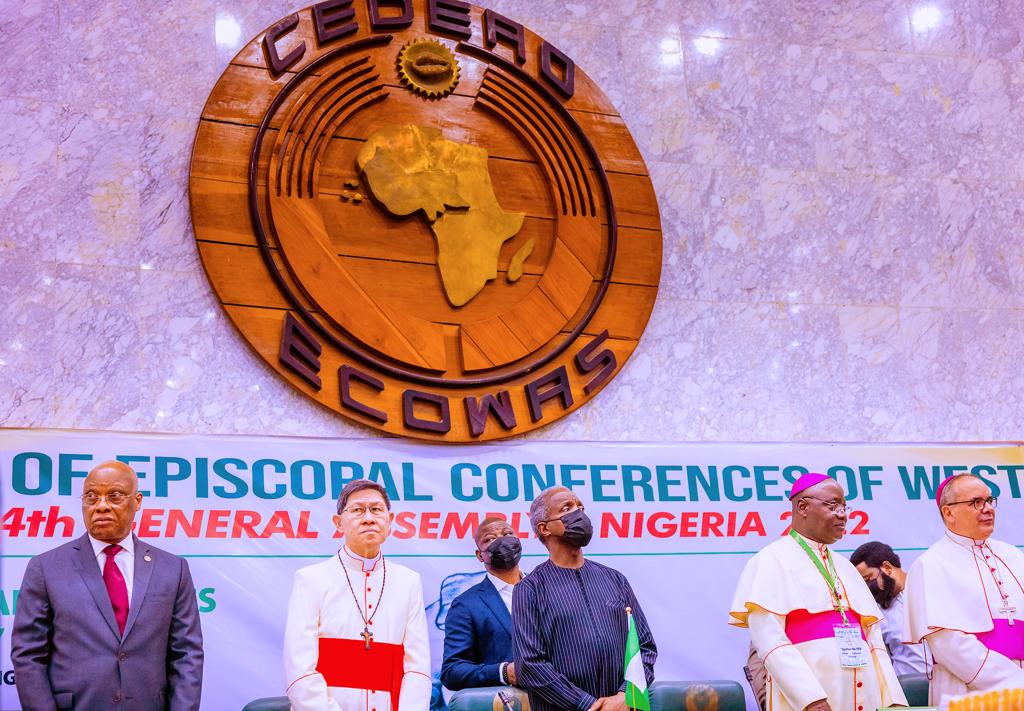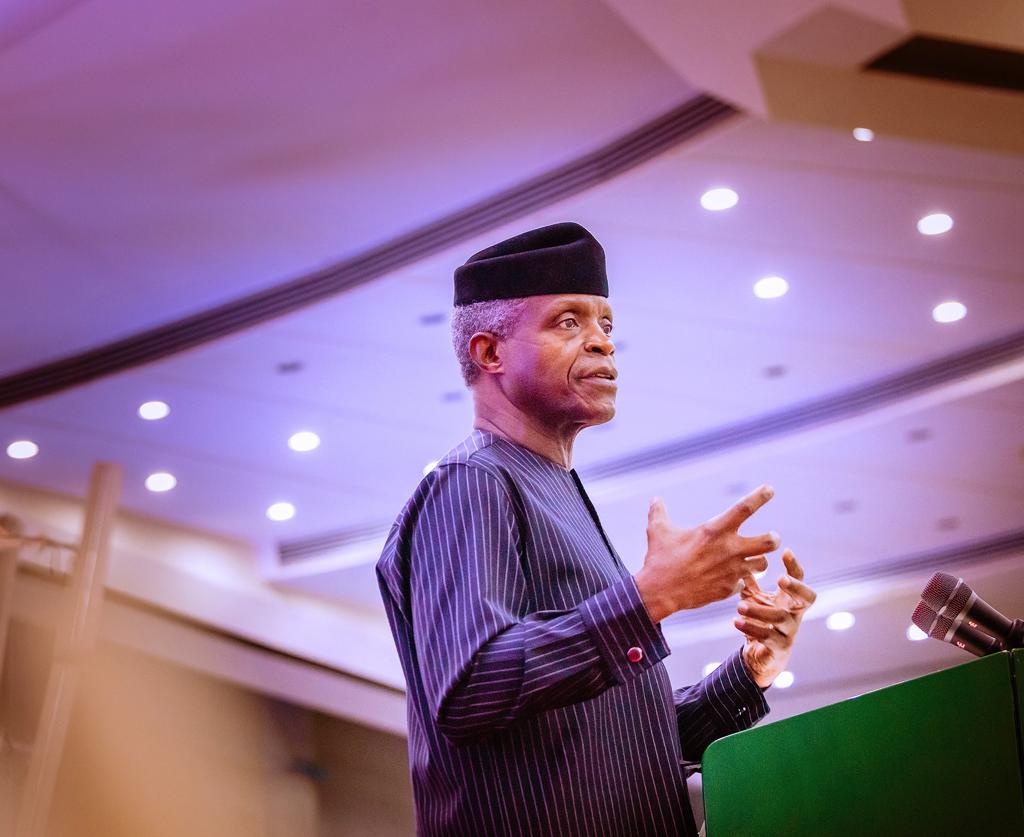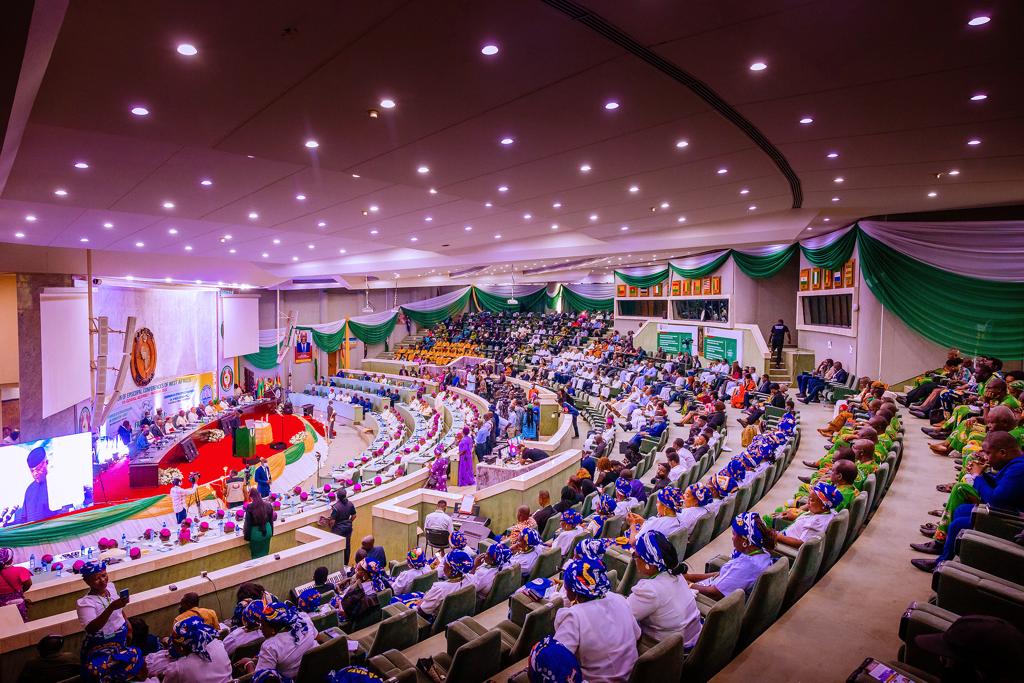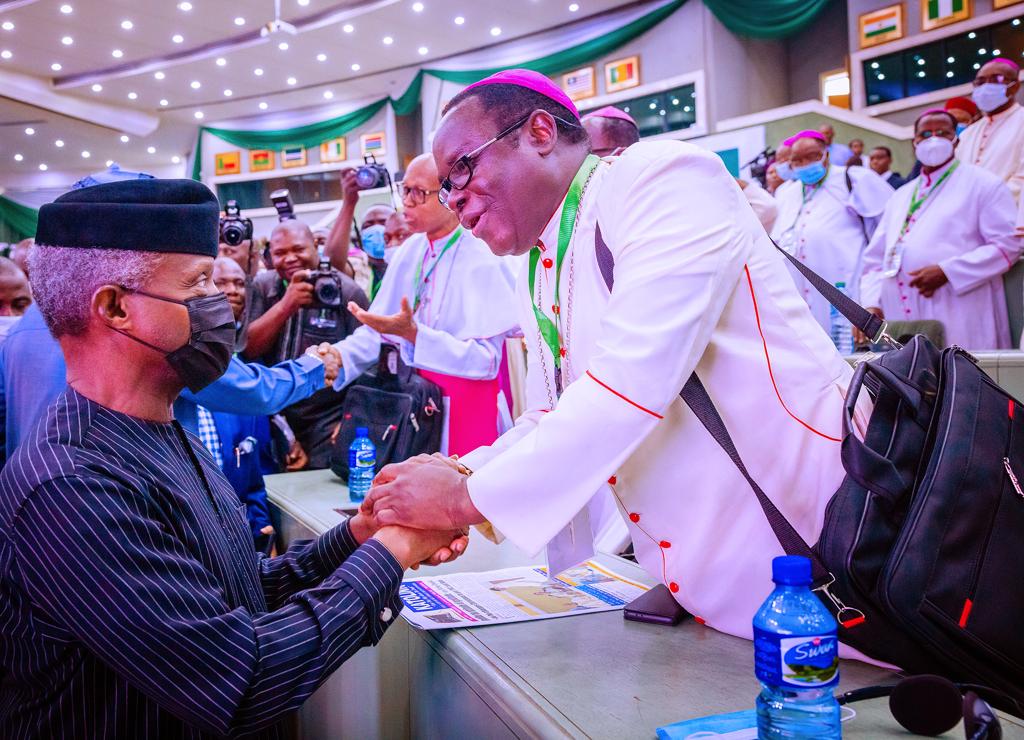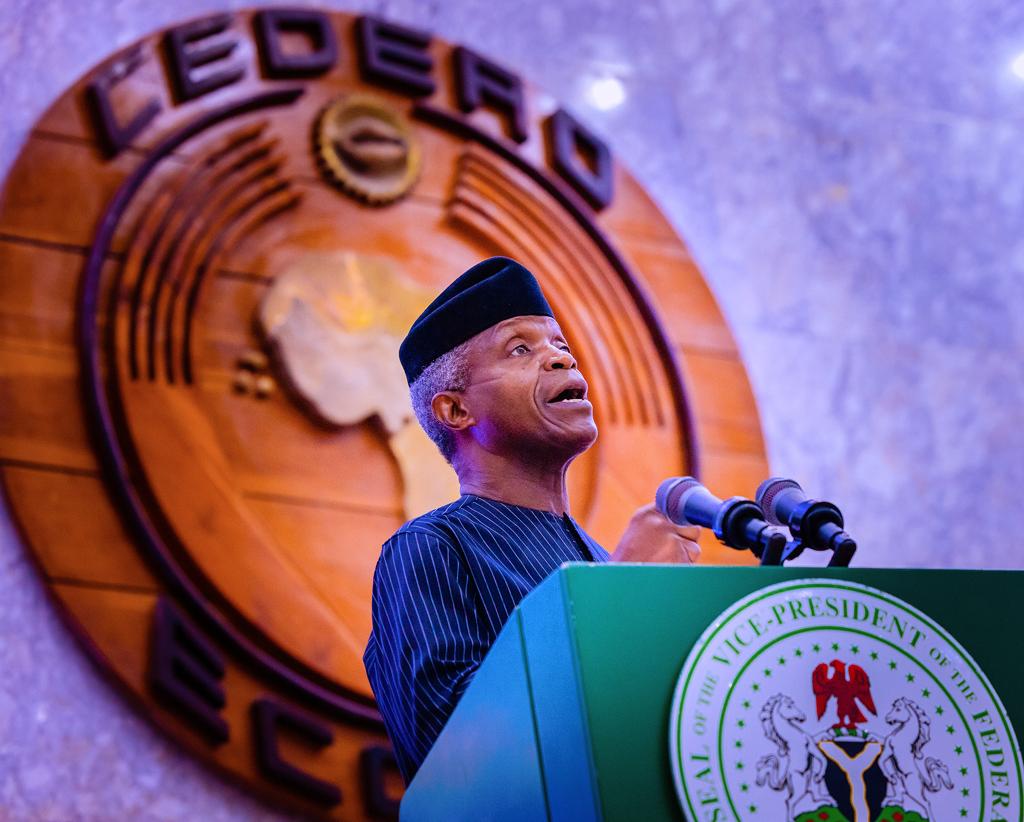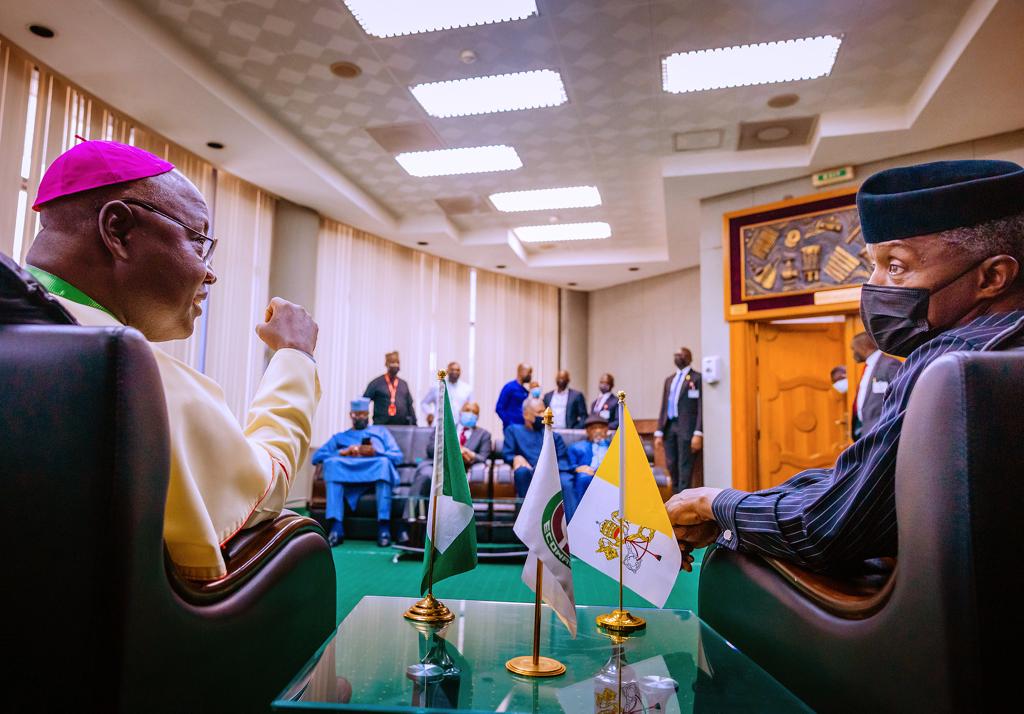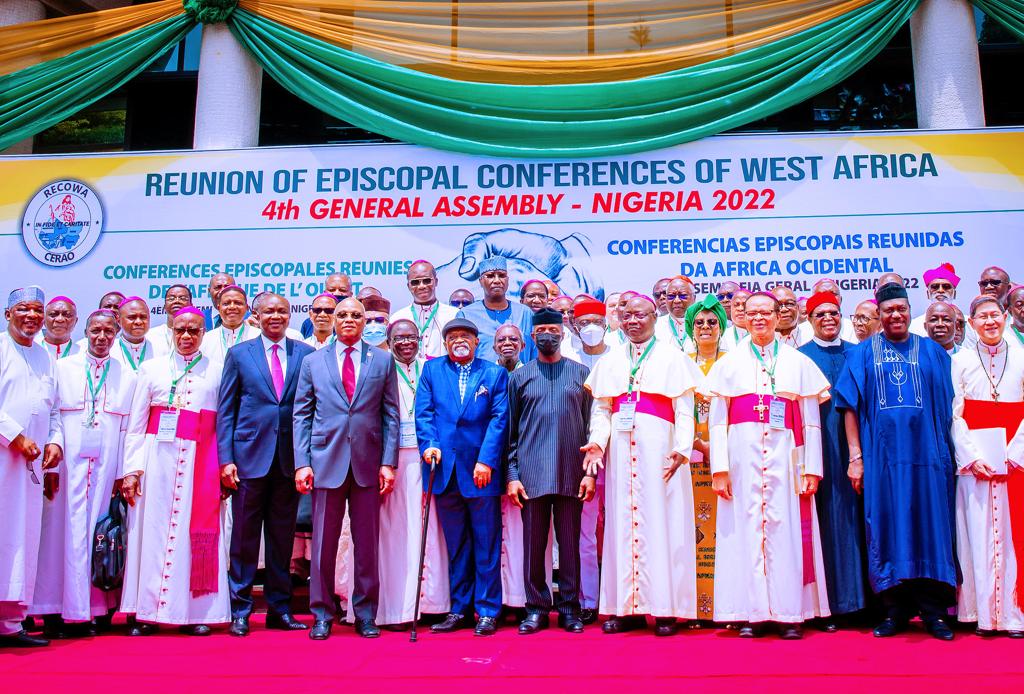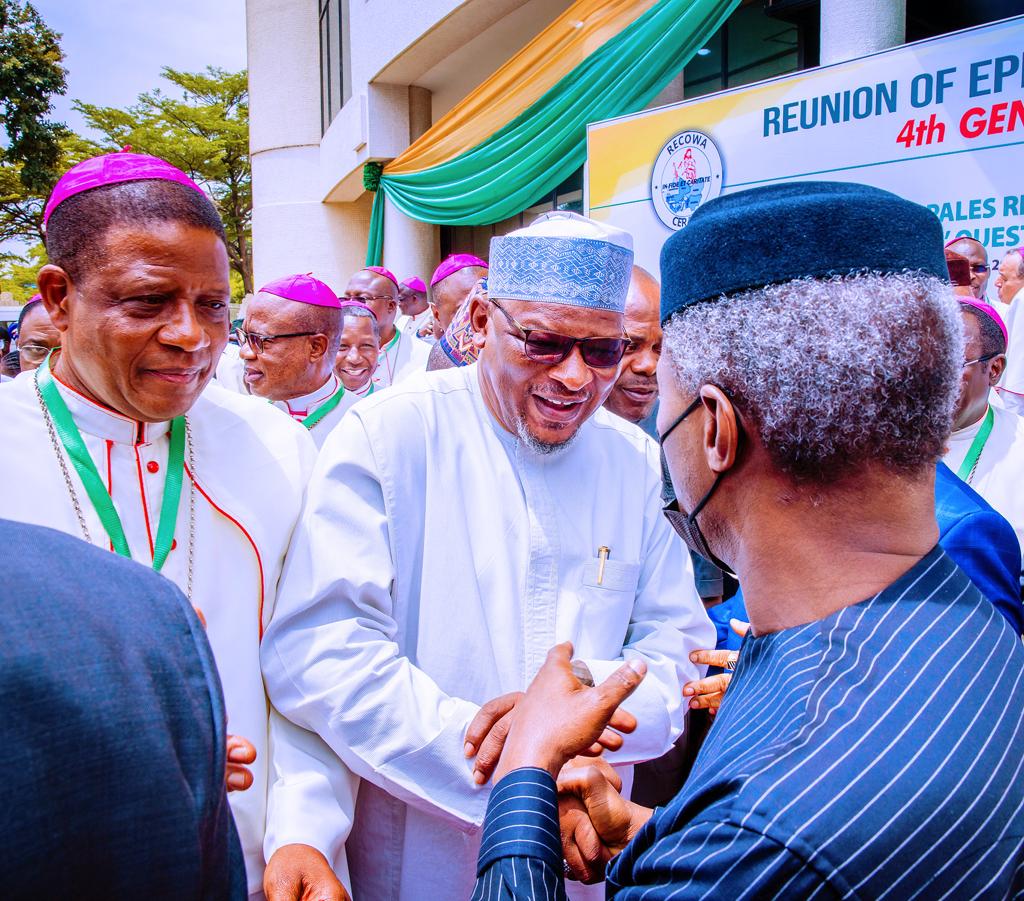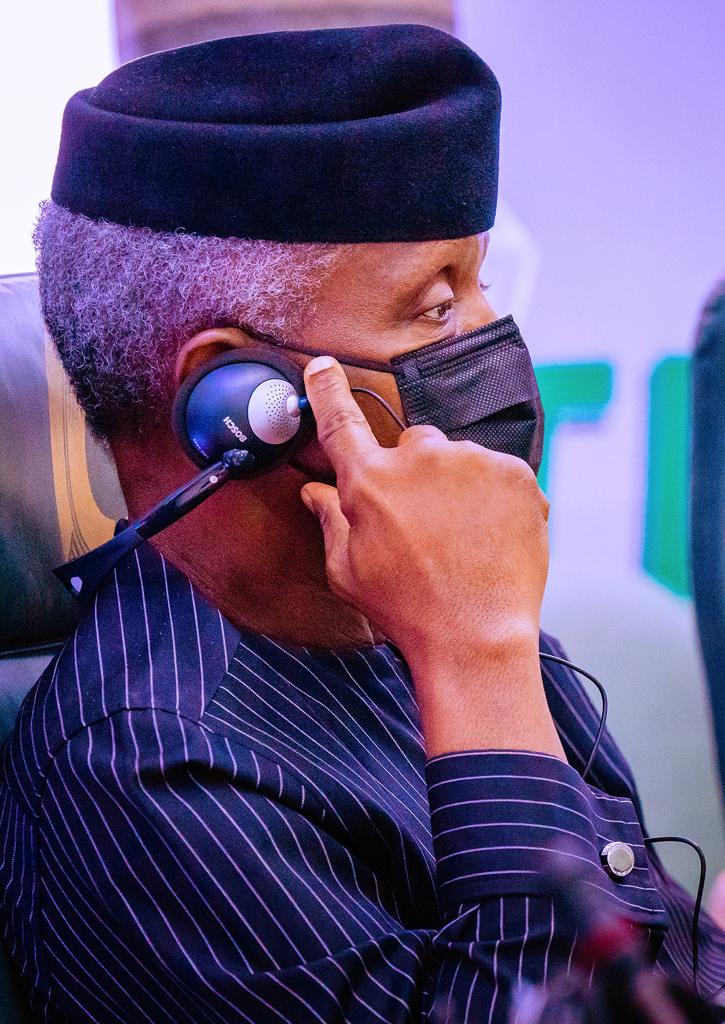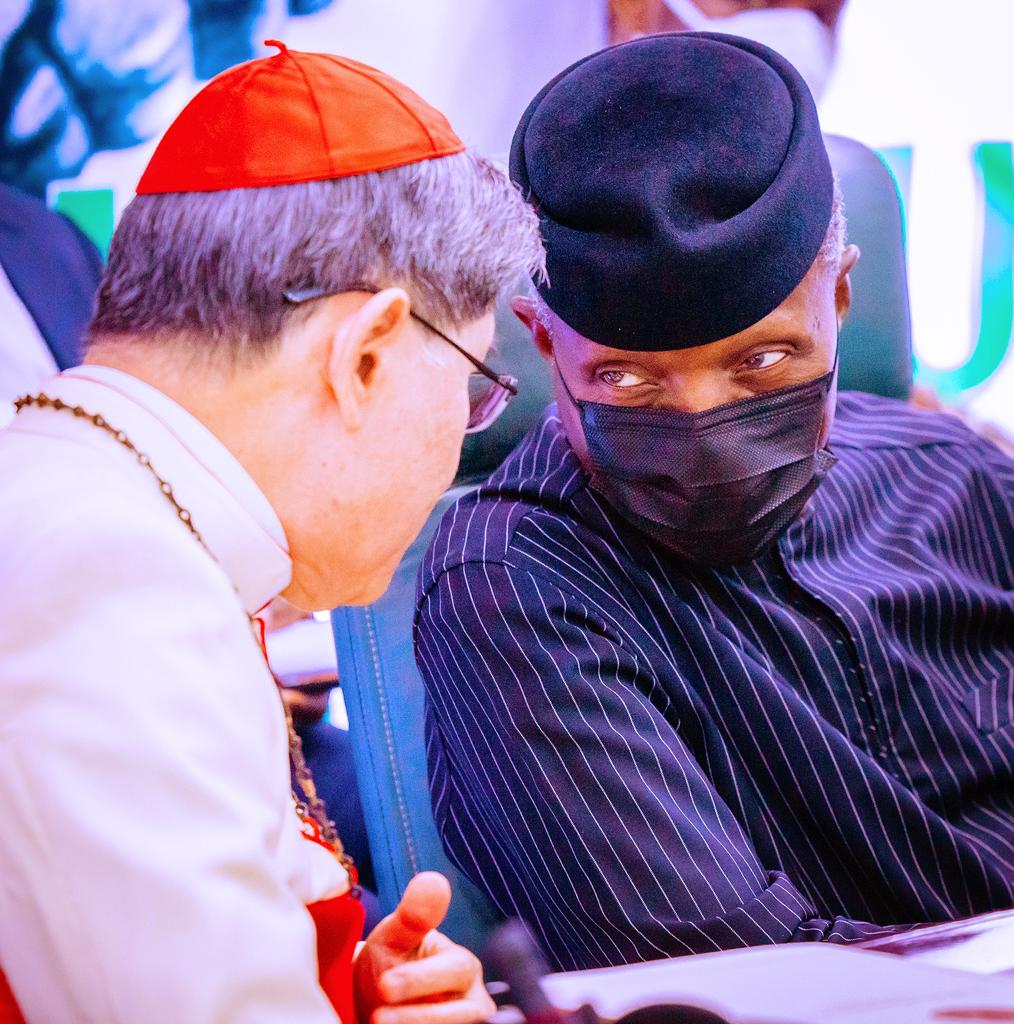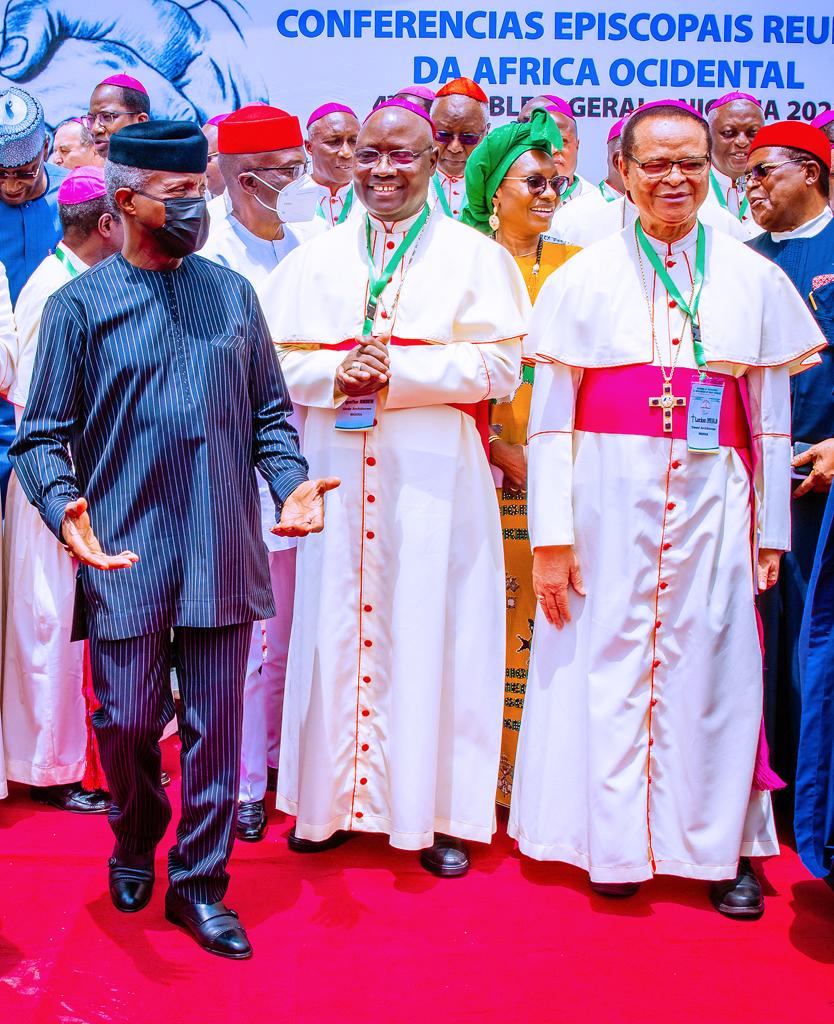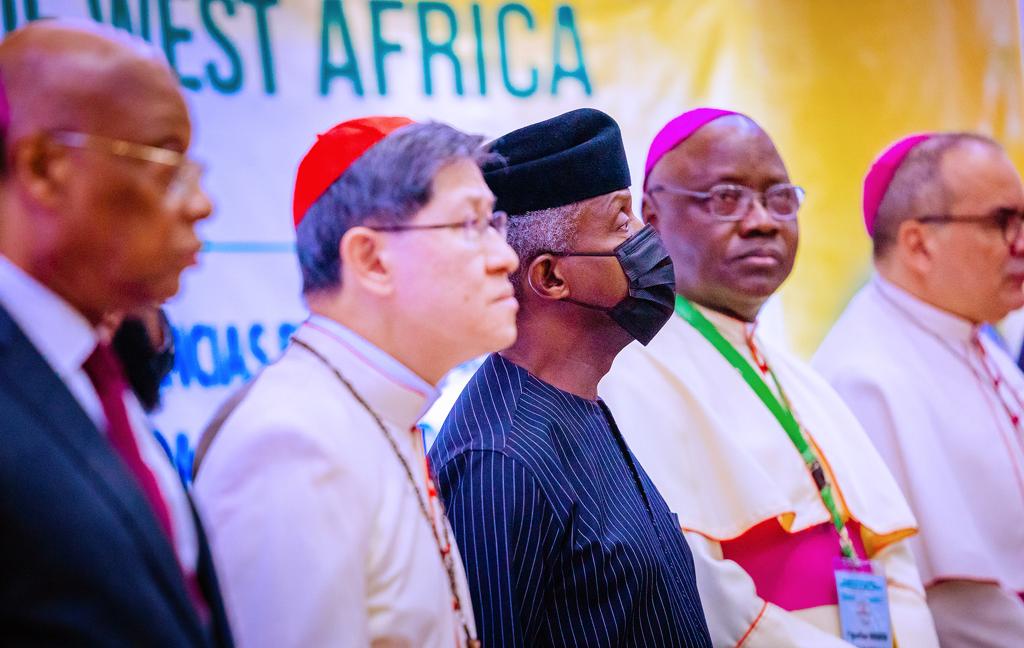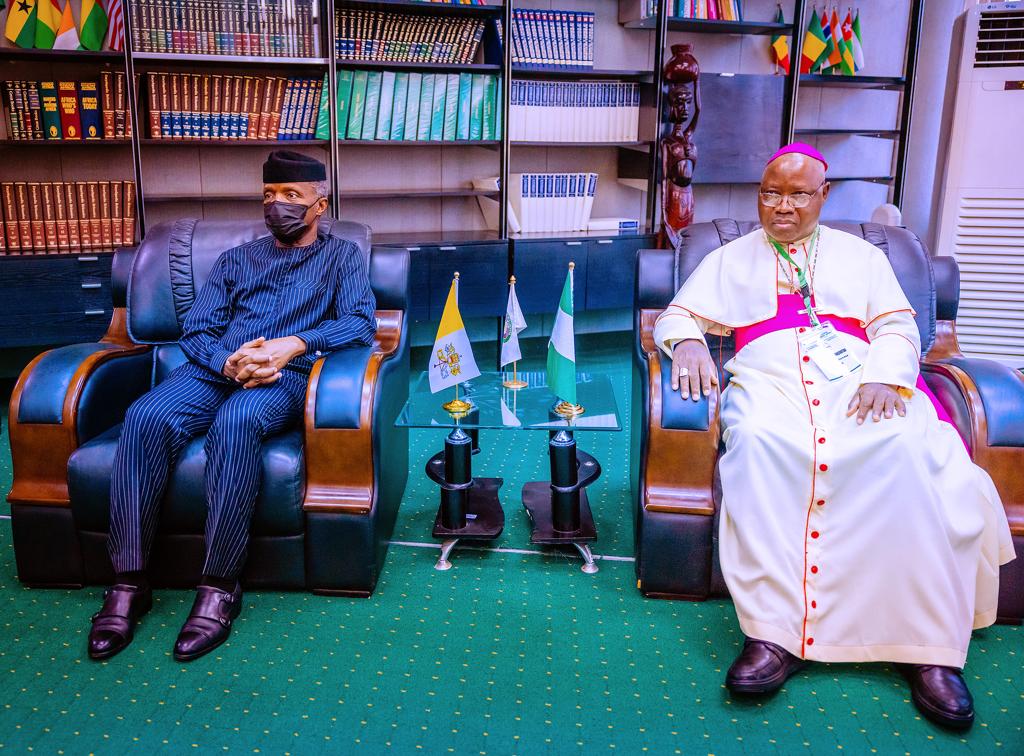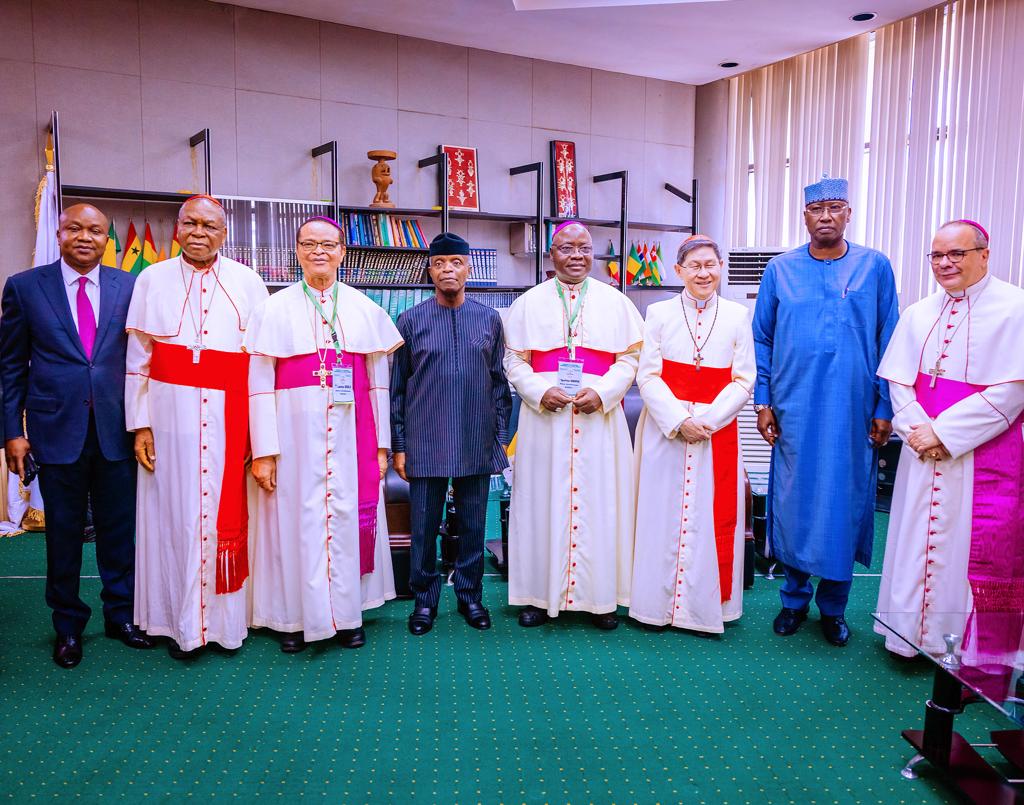Reunion Of Episcopal Conferences Of West Africa, RECOWA
REMARKS BY HIS EXCELLENCY, PROF. YEMI OSINBAJO, SAN, GCON, THE VICE PRESIDENT OF THE FEDERAL REPUBLIC OF NIGERIA, AT THE GENERAL ASSEMBLY OF THE REUNION OF THE EPISCOPAL CONFERENCE OF WEST AFRICA (RECOWA) THEMED: “FRATELLI TUTTI: PATH TO BUILD BROTHERHOOD AND SUSTAINABLE PEACE IN WEST AFRICA” ON THE 3RD OF MAY, 2022
PROTOCOLS
My gratitude to the Catholic Archbishop of Abuja, His Eminence Archbishop Kaigama for the kind invitation to join you at the opening ceremony of this very important conference. I bring you the warm greetings and special felicitations of our President, President Muhammadu Buhari, who I have the privilege of representing here.
My Lords, the founding fathers of the Economic Community of West African States envisioned West Africa as a zone of free-flowing commerce and travel in which people would co-mingle and migrate freely, thereby overcoming the problems that have been associated with colonialism in the past and the barriers that have been created by colonialism in the past.
The truth is that since the establishment of ECOWAS, we have made considerable progress towards achieving the goal of integration. We agreed on and introduced the ECOWAS passport, we have protocols that allow us to go from one of our countries to the other and spend up to 90 days at a time.
We have the ECOWAS Trade Liberalization Scheme (ETLS) to promote economic relations within the sub-region offering unhindered market access to the fifteen member countries. We have signed several protocols that have enabled us more or less to establish the sort of ECOWAS that we desire.
But our goals of unity and integration have always been thwarted not just by concerns of individual sovereignty of our nations but also by internal crises and social conflicts in our nations and around the borders. Today, our region is passing through a season of considerable political, economic and social turmoil. Terrorism and violent banditry afflict many of our nations and especially in the Sahel.
In the aftermath of the COVID 19 pandemic, many of our economies have been weakened, while unemployment has escalated and poverty has deepened.
Since 2017, there have been 12 military coups in Africa and half of them have occurred since 2020. Historically in times like these, parochial prejudices are heightened and the fabric of cohesion becomes frayed as people retreat into ethnic, religious and other nativist camps. Those that do not speak our language or subscribe to our faith come under great suspicion and they soon become scapegoats for all our challenges. And ethnic, religious and separatist conflicts are rife.
In all of these, the ideal of an integrated peaceful and prosperous subregion seems almost impossible. Peace cannot reign in our region if it does not first reign in our communities and countries.
This is why I think that the theme of this summit is especially apt. “Fratelli Tutti: Path to Build Brotherhood and Sustainable Peace in West Africa.”
Fratelli Tutti is the powerful notion on which His Holiness, Pope Francis anchors his most recent Encyclical- titled Fratelli Tutti. The concept here is of the brotherhood of all humanity. The idea is that fraternity and social friendship are the ways to build a better, more just and peaceful world with the commitment of all peoples and institutions. The Encyclical proposes some of the boldest and most radical ideas on securing human unity, peace and security.
In the despair and bleakness of the times, these ideas that offer hope and renewal are much needed.
In answer to the challenges many of our societies face in trying to meld diverse ethnic and religious communities under one flag, the encyclical offers, and I quote: “If every human being possesses an inalienable dignity if all people are my brothers and sisters, and if the world truly belongs to everyone, then it matters little whether my neighbour was born in my country or elsewhere”— Indeed as people of faith, we look upon the diversity of our people as a gift of providence, not as a cause of conflict. We are gratified that the Church has stood out and continues to stand as a powerful voice for ecumenism all over the world and is committed to doing so in our region.
By offering concrete prescriptions on building brotherhood and sustainable peace anywhere, the Encyclical Fratelli Tutti rightly takes the position that this is not merely the business of governments and political institutions; it must also be anchored on our civil societies of which the faith communities are an important constituency.
So the role of the church in this enterprise is settled. Indeed, the Catholic Church and the Bishops’ Conference have established a reputation for speaking truth to power in consonance with the highest prophetic traditions and by continuing its illustrious practice of inspiring social action by the lay faithful.
Over the years, the Church has modelled profound approaches to challenging the impunity of some state actors and errant power. But my Lords, I believe the times also call for speaking to the growing numbers of violent non-state actors, some propagating genuine causes but with mindless violence often leading to the destruction of lives and property. In answer to tendencies that promote violence, force and war in the propagation of even the best ideas, His Holiness the Pope takes the view that even Augustine of Hippo, “who forged a concept of ‘just war’ also said that ‘it is a higher glory still to stay war itself with a word than to slay men with the sword, and to procure or maintain peace by peace, not by war.”
This body, this conference can also supply a moral and spiritual consensus that undergirds the project of integration. In doing so I believe we can also look to the idea of the common good which is perhaps the cornerstone of Catholic Social Teachings. By one definition, “the common good consists of our shared values about what we owe one another as citizens who are bound together in the same society – the norms we voluntarily abide by, and the ideals we seek to achieve.”
Again this finds support in the allusion of Pope Francis in the Encyclical to the story of the Good Samaritan. This story is the theological core of the encyclical. The story that the Lord Jesus told that raises sacrifice and concern for the well being of others over self and establishes the truth that love of our neighbour is the greatest expression of our faith. Concern for our neighbours is the moral foundation of social welfare and social security for the poor and vulnerable. Schemes that ensure that none is left behind and that no citizen in these blessed West African nations needs to go to bed hungry. That we must prioritize universal healthcare, while also ensuring free and compulsory basic education. And that we must create the environment for millions of young and restless people within our borders to find good-paying jobs and live decent lives.
For our own part, the Government of Nigeria remains committed to collaborating with the Church and all well-meaning actors in promoting peace and security.
As you begin your conference, I urge you not only to explore ways of strengthening the bonds of faith between your communities, but also of building bridges across every divide that threatens to fracture our nations. It is my hope that you will conceptualize ways of bringing the full weight of the immense moral authority that you possess upon our nations and the sub-region as a whole.
It is evident that we cannot create fraternity and harmony in West Africa without our faith communities.
On this note may I add my voice to the warm welcome you have received, and to say welcome home to all of our West African brothers and sisters, let me also encourage you to enjoy the ambience and culinary delights of Abuja.
I wish you fruitful deliberations.
God bless the Federal Republic of Nigeria.
God bless all our Nations.
God bless ECOWAS.
God bless you all.
Thank you.


